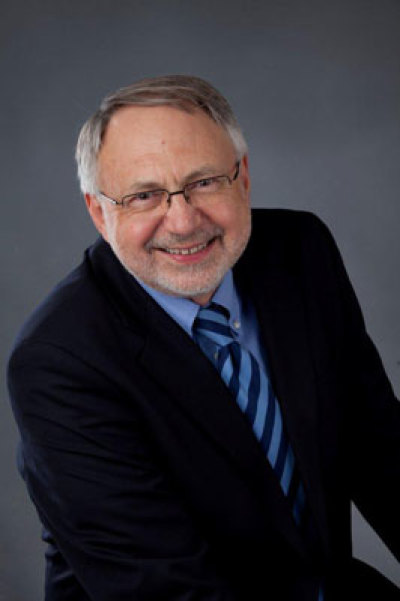The Middle East: Full of surprises
What comes to your mind when you think of the Middle East? Wars? Fanatical extremists? America haters?
I’ve lived in the Middle East for nearly 50 years, and I’ve found most people in America, the U.K., and the West have set notions about this volatile part of the world.

But I’ve also discovered that the Middle East is full of surprises.
Did you know, for example, that two-thirds of the population of the Middle East is younger than 30?
They represent a bold, new generation that’s clamoring for change. They’re fed up with oppressive regimes that continually ram restrictions down their throats. They’re sick of failing economies, corruption and hypocrisy.
And many are turning their backs on the restrictive religious systems they’ve been raised with — either rejecting traditional beliefs or declaring they don’t believe in God at all. In a region where religion plays such a dominant role, the surging number of young "religious rebels" in 2021 is a surprising reality. Just a generation ago, it was impossible to conceive of people in Iran and other Middle East theocracies declaring themselves to be deists or atheists, with the latter considered apostasy and punishable by death in some countries.
In the Islamic Republic of Iran — where conversion to Christianity often results in imprisonment, and it’s illegal to hold worship services in the Farsi (Persian) language — millions of young people want to escape the straitjacket of religious extremism that’s brought them only conflicts, misery and hopelessness. Through their smartphones and other digital devices, they’ve seen what freedom has to offer. And they’re desperate for it.
Across the Middle East, young people see no hope for their future. Many have no job. One in every three women has experienced physical violence by their partner. So-called "honor killings" are widely accepted. Suicide among young people is soaring. And freedom of the press is virtually non-existent.
Surprising crack in the armor
Yet as young people push back against these stifling social and religious norms, there’s a surprising crack in their anti-establishment, religion-wary armor. They’re curious about Christianity because it’s vastly different from anything they’ve encountered before. As they begin to hear about Jesus, a preacher of love, forgiveness, turning the other cheek — breaking the endless cycle of “an eye for an eye” so prevalent in the Middle East — they’re hungry to learn more about Him. They’re anxious for a real, living hope. They want to be surprised!
In my half century of life and media ministry in the Middle East, there’s never been a more critical or opportune moment to broadcast the hope of the whole Gospel to millions looking for a surprising answer to their spiritual, physical, emotional and economic struggles. At SAT-7 (www.sat7usa.org) — an indigenous media ministry I started 25 years ago in the Middle East -- our local presenters and their guests show people what it means to be a Christian here. They’re “living epistles” — living love letters, if you like — showing viewers every day how Jesus surprises them.
And now we have the most powerful media channels ever — locally-produced satellite television broadcasts that can’t be censored; video-on-demand services that can be played on smartphones and other digital devices anywhere, any time; and social media live-chat platforms that engage people in real-time in Arabic, Farsi and Turkish.
This revolution in both on-air and online media is giving local Christians across the Middle East and North Africa previously unimaginable opportunities to share their lives and their faith with millions who have perhaps never even spoken with a Christ-follower before.
Surprising skeptics
As I share in my new bookDare to Believe, God is using their courageous witness to surprise and shock even the most ardent religious skeptics with the cannot-be-faked, unquenchable love of Jesus.
Aziz, a young Iraqi militant fighting with extremists in Syria, surprised the SAT-7 team when he called our counseling line, shaken by what he described as an encounter with Jesus. While hiding in a devastated church building during a battle, he told us, a man in radiant white touched his shoulder. Aziz said he recognized the man as Jesus Christ from the "JESUS" film he’d seen on SAT-7’s Arabic channel. “The living Jesus came to me,” Aziz said. “I told him, ‘I want to follow you.’”
In the fullness of time, I believe you and I will be surprised, too — even awestruck — when all that’s happening right now in secret in the Middle East becomes clear to everyone.
That’s because God is constantly springing surprises — and daring us to believe he can do the impossible.
Terence “Terry” Ascott has lived in the Middle East and served as the leader for indigenous media ministries for nearly 50 years. In 1996, he launched SAT-7 (www.sat7usa.org), the first Arabic-language, and later Farsi and Turkish, Christian satellite television channels. His remarkable experiences in the Middle East are featured in his new book, Dare to Believe! Stories of Faith from the Middle East.



























